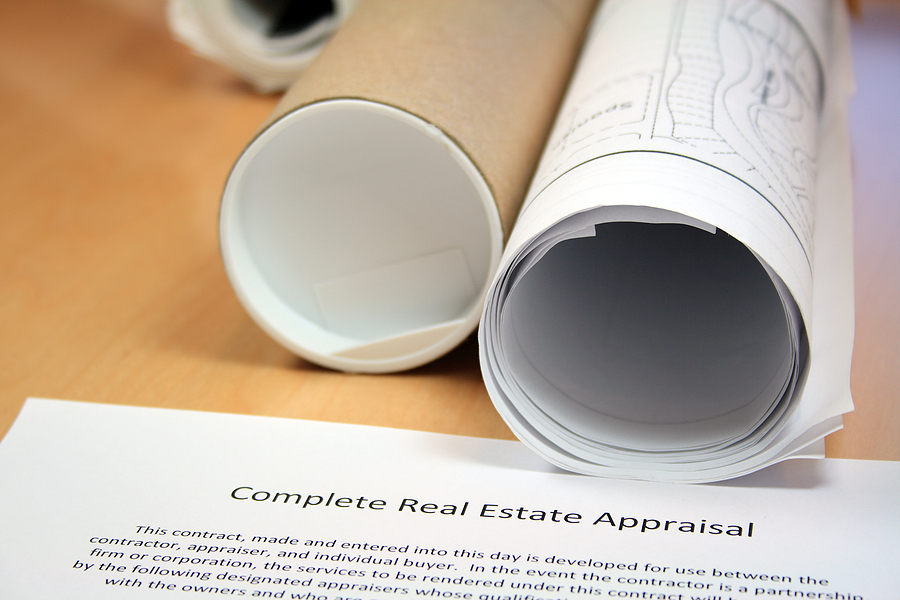All About Home Appraisals
Buying and refinancing a home is all part of the home-ownership cycle. Home appraisals are a crucial part of this cycle, as they determine the value of a home. While the home appraisal process may seem difficult to understand, it’s actually pretty simple. Below is a resource guide highlighting home appraisals and their importance to home buyers and refinancers.
Definition
Essentially, a home appraisal is an objective assessment done by a professional to determine the value of a home or property. Home appraisals dictate whether the sale price of a home is within the fair market value, or a fair price the buyer would pay for a home in an open market. Many mortgage lenders require home appraisals to ensure they’re not taking a risk when offering a loan to a homebuyer or refinancer. The accuracy of a home appraisal is crucial, given the home serves as collateral to the buyer. Home appraisals cost an average of $300-$450 per home, although they may be more expensive in larger metropolitan areas. It should be noted that home appraisals differ from home inspections. Home appraisals determine the value of a home, while home inspections determine the condition of a home.

How it Works
A home appraisal is often required when buying or refinancing a home. A mortgage lender will order an appraisal after a borrower’s offer has been accepted. An appraiser looks for several things during a home appraisal, including the home’s condition, location, age, size, appliances, amenities, and much more. In addition to a physical assessment of the property, an appraiser examines recent home sales, or "comps", in the area. They also take into account a home’s neighborhood and surrounding properties. Sometimes, a neighborhood may decrease a home’s overall value, despite how appealing the home may be. Moreover, home appraisers research the value of properties similar to yours.

Considerations
When purchasing a home, it's important to remember that the results of your appraisal are not within your control. It is wise to ensure your home purchase agreement includes an appraisal contingency that would allow you to walk away from a home deal if the value is lower than your expectations. Similarly, it’s important to not make a higher offer than what you believe a home may be worth. If refinancing, be sure to provide a list of home improvements you’ve made to increase the value of your home’s appraisal. If possible, provide receipts or before and after photographs of those renovations. It’s also smart to provide your appraiser with a list of properties in the area that are similar to yours, which can help prevent a low appraisal value on your home. You can research homes similar to yours online or with the help of a real estate agent. Before an appraiser visits your property, it’s advantageous to clean and organize your home. Doing work around the yard, like mowing or planting flowers, can also make your home look more appealing to appraisers.

After Your Appraisal
Once your appraisal has been conducted, you have the right to request a free copy of the report up to 72 hours before your loan closes. It is key to review this report for inaccuracies. If you spot any errors, notify your lender immediately - you may be entitled to a second home appraisal (although you’ll likely have to pay for it). It’s also smart to review your home appraisal report to ensure your home is valued within your expectations. If the value is lower than you’d like, many appraisal contingencies allow you to back out of your home deal. Again, it’s important to review your home purchase agreement before signing to confirm these contingencies are in place. Likewise, if the appraisal value of your home is less than what the seller is asking, you can always negotiate a price. If the seller does not budge, this can lead you to pay more than what your home is worth. If you believe your appraisal may have been lowballed, you can always request a second appraisal.

Alternatives
Although a home appraisal is the most accurate way to determine the value of a property, there are other home appraisal options to choose from. A comparative market analysis gathers data on homes in your area similar to yours to determine their fair market value. This analysis can be arranged by a real estate agent and can be a great tool early in the home-buying process. Even so, they’re no substitute for a home appraisal. Similarly, various online home value tools can provide an estimate of your home’s fair market value by using publicly available data. Zillow’s Zestimate is one of these tools, although results from online appraisals can vary drastically. Many also do not take into account your home’s condition, appliances, and other factors. That said, the best way to determine your home’s fair market value is by requesting a traditional home appraisal.
When buying or refinancing a home, a home appraisal is key to ensuring you don’t overpay. Home appraisals are also required by many lenders, and are a huge part of the home-buying process. While they may seem daunting at the surface, they’re not as scary as they sound.
Looking to buy a home? Gulf Winds can help you out.

Hunter Morrison
About Hunter Morrison
Hunter has freelanced for various print and radio publications across Northwest Florida, including The Bay Beacon, Navarre Press, Inweekly, Crestview News Bulletin, and WUWF. He was also the Editor in Chief of the University of West Florida’s student newspaper, The Voyager. In 2023, Hunter moved to Kenai, Alaska to take up a news reporting position with KDLL Public Radio. For fun, Hunter enjoys cross-country skiing, hiking, photography, thrifting, traveling, and looking for the best Thai food around.